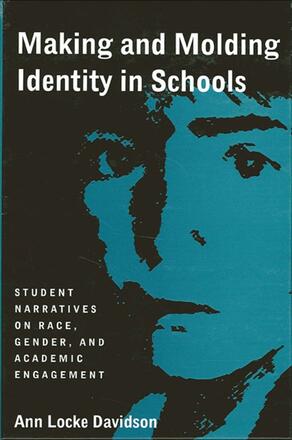
Making and Molding Identity in Schools
Student Narratives on Race, Gender, and Academic Engagement
Alternative formats available from:
Delves into the lives and words of adolescents to examine how they assert their ethnic and racial identities within school settings.
Description
Making and Molding Identity in Schools delves into the lives of adolescents to examine how youths assert ethnic and racial identities in the face of policies, discourses, and practices that work both to reproduce and challenge social categories. Detailed case studies illuminate adolescent voices and perspectives, revealing that identity and academic engagement emanate not just from societal and cultural forces, but also from ordinary, day to day interactions and experiences within school settings. Drawing on contemporary social theory, the author emphasizes the political and relational nature of race and ethnicity, and illustrates the potential for identities and ideologies to vary over time and across school settings. The book provides a needed expansion of theories that link youth identities and ideologies solely to cultural, economic and political forces, and provides insight into settings that allow students to engage without discarding their ethnic and racial selves.
Ann Locke Davidson is Research Associate at the Learning Research and Development Center, University of Pittsburgh. She is coeditor, with Patricia Phelan, of Renegotiating Cultural Diversity in American Schools.
Reviews
"I liked this book for several reasons. First, it provided me with a fairly good overview of the discourse in anthropology and education that deals with ethnic or racial identity and the schooling process. Second, it suggests that schools can make a difference and that students do not react to schooling in a neatly predictable way according to their ethnic or racial identity. It suggests, then, that schools can be important cultural sites for the reconstruction of identity consistent with the empowerment of marginalized youth and that they can challenge power relations and beliefs in the dominant culture. Finally, I liked the book because of its attempt to understand all of these issues through a presentation and interpretation of several stories of youth in school. " — Dennis L. Carlson, Miami University